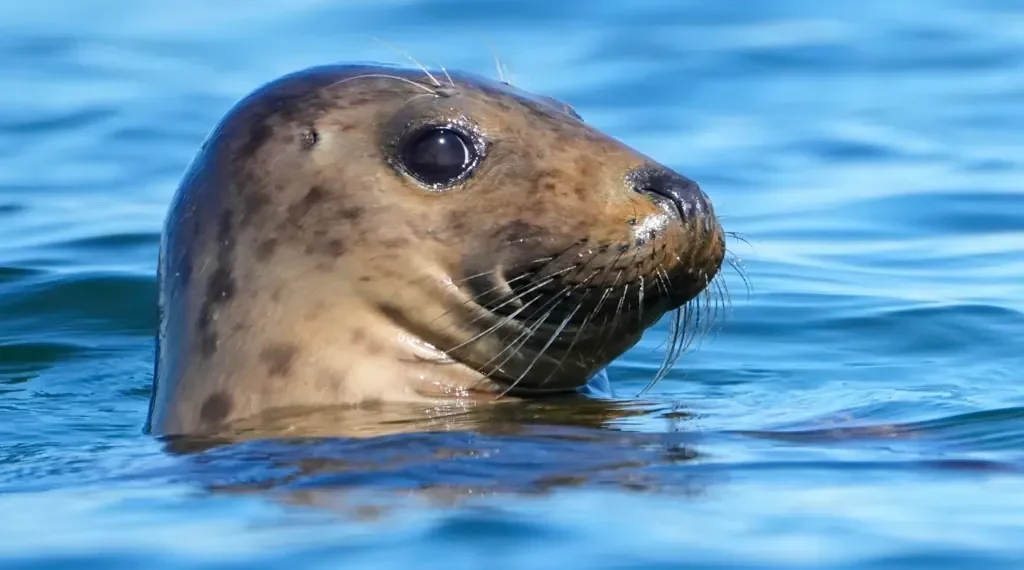Lawmakers Seek to Revise Marine Mammal Protection Act, Raising Conservation Concerns
Published: October 13, 2025, 22:35 EDT
Republican lawmakers have introduced a bill seeking to loosen parts of the Marine Mammal Protection Act (MMPA), a landmark U.S. law that has safeguarded whales, seals, and polar bears for over half a century. The proposal has drawn sharp criticism from environmental groups, who warn that weakening the act could reverse decades of conservation progress.
A 50-Year-Old Conservation Milestone Under Review
Enacted in 1972, the Marine Mammal Protection Act was designed to halt the rapid decline of marine species like whales and seals by prohibiting hunting, capture, or harassment within U.S. waters. It remains one of the most influential wildlife protection laws in the world, credited with reviving populations once driven close to extinction.
Conservation advocates say the law’s scientific approach has been pivotal. “The Marine Mammal Protection Act is one of our bedrock laws that helps base conservation measures on the best available science,” said Kathleen Collins of the International Fund for Animal Welfare.
The law predates the Endangered Species Act by a year and grew out of the global movement to save whales from industrial hunting. At the time, public awareness soared after scientists discovered whales could communicate through song — a revelation that inspired widespread empathy and cultural change.
Proposed Amendments Aim to Reduce Industry Restrictions
The new proposal, introduced by Republican Representative Nick Begich of Alaska, argues that the MMPA has placed “undue constraints” on fishermen, tribes, and marine industries. The bill seeks to revise population goals for marine mammals and narrow the legal definition of what constitutes “harassment.”
Currently, the law defines harassment as any activity with the potential to injure marine mammals. The proposed change would limit that definition to only actions that actually cause injury — a shift that critics say could make it harder to protect vulnerable species.
Environmental organizations warn that such a change could endanger species like the Rice’s whale, which numbers only a few dozen in the Gulf of Mexico. The bill also includes a clause delaying certain North Atlantic right whale protections until 2035, a move conservationists call devastating for a species already down to fewer than 400 individuals.
Begich has said he aims to “protect marine mammals while ensuring policies work for those who live and work alongside them,” but his office declined to comment further on the bill’s progress in Congress.
Fishing and Marine Industries Push for Reform
Support for the legislation comes from a coalition of U.S. fishing groups, particularly in Maine, Alaska, and Hawaii, where industry leaders argue that the law no longer reflects current realities.
In a July letter to the House of Representatives, fishing groups praised the effort as “a positive and necessary step for the success of American fisheries.”
Virginia Olsen, political director of the Maine Lobstering Union, said the MMPA’s restrictions on lobster fishing have made it difficult to sustain one of Maine’s key industries. “We do not want to see marine mammals harmed,” Olsen said. “But we need a healthy ocean and a balanced policy that supports Maine’s heritage fishery.”
Under existing rules, Maine lobstermen must comply with gear regulations and seasonal closures aimed at preventing whale entanglements. Olsen and other industry figures contend these restrictions offer little measurable benefit to the right whale population.
The National Marine Manufacturers Association has also urged lawmakers to modernize the law, saying outdated provisions hinder innovation in marine technology and environmental compliance.
Environmental Advocates Warn of Long-Term Damage
Environmentalists say rolling back the Marine Mammal Protection Act would undermine decades of progress. Many see the proposal as part of a broader push to relax federal environmental regulations that began under the Trump administration.
“The Marine Mammal Protection Act is flexible and effective. We don’t need to overhaul it,” said Gib Brogan, senior campaign director at Oceana, adding that the law has helped restore species such as humpback whales, once on the brink of extinction.
Experts also warn that revising definitions of harm could complicate oversight of industries like offshore drilling, shipping, and oil exploration — sectors often linked to collisions and noise pollution affecting whale populations.
Debate Over Imports and Global Seafood Trade
The law not only governs U.S. fisheries but also restricts imports of seafood from countries that fail to meet similar standards. Those provisions have become a flashpoint for the seafood trade, as they can result in embargoes against foreign suppliers.
The National Fisheries Institute, representing U.S. seafood importers, argues that these restrictions penalize domestic businesses. “Our fisheries are well-regulated and responsibly managed,” said Gavin Gibbons, the institute’s chief strategy officer. “We can’t expect fishermen to catch more here to offset import limits without jeopardizing sustainability.”
Gibbons emphasized that the group supports the act’s goals but wants “responsible implementation” that recognizes the global nature of the seafood supply chain.
However, conservationists warn that loosening U.S. import standards could allow poorly regulated foreign fisheries to flood the market, undermining global sustainability efforts.
What’s Next for the Marine Mammal Protection Act
The proposed amendments are still under discussion in Congress, with no timeline for a formal vote. Lawmakers from coastal states are expected to weigh in heavily, as the debate touches on both environmental and economic priorities.
While industry groups see modernization as essential for business growth, conservation advocates view it as a step backward that could endanger marine biodiversity and weaken the United States’ international environmental leadership.
As the political battle continues, one fact remains clear: the Marine Mammal Protection Act — a 50-year-old cornerstone of U.S. conservation policy — faces its most significant challenge in decades.
This article was rewritten by JournosNews.com based on verified reporting from trusted sources. The content has been independently reviewed, fact-checked, and edited for accuracy, neutrality, tone, and global readability in accordance with Google News and AdSense standards.
All opinions, quotes, or statements from contributors, experts, or sourced organizations do not necessarily reflect the views of JournosNews.com. JournosNews.com maintains full editorial independence from any external funders, sponsors, or organizations.
Stay informed with JournosNews.com — your trusted source for verified global reporting and in-depth analysis. Follow us on Google News, BlueSky, and X for real-time updates.














